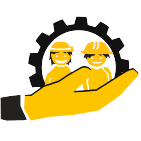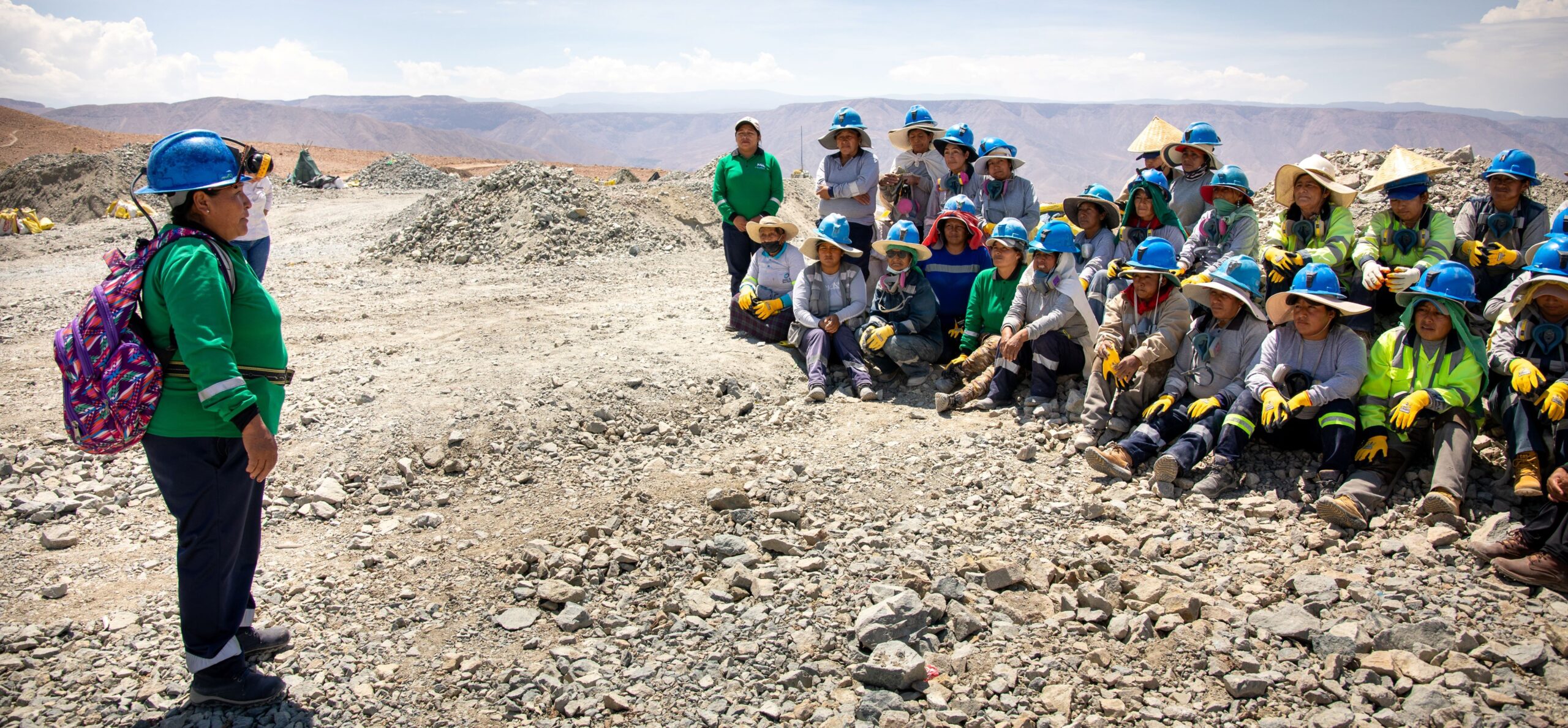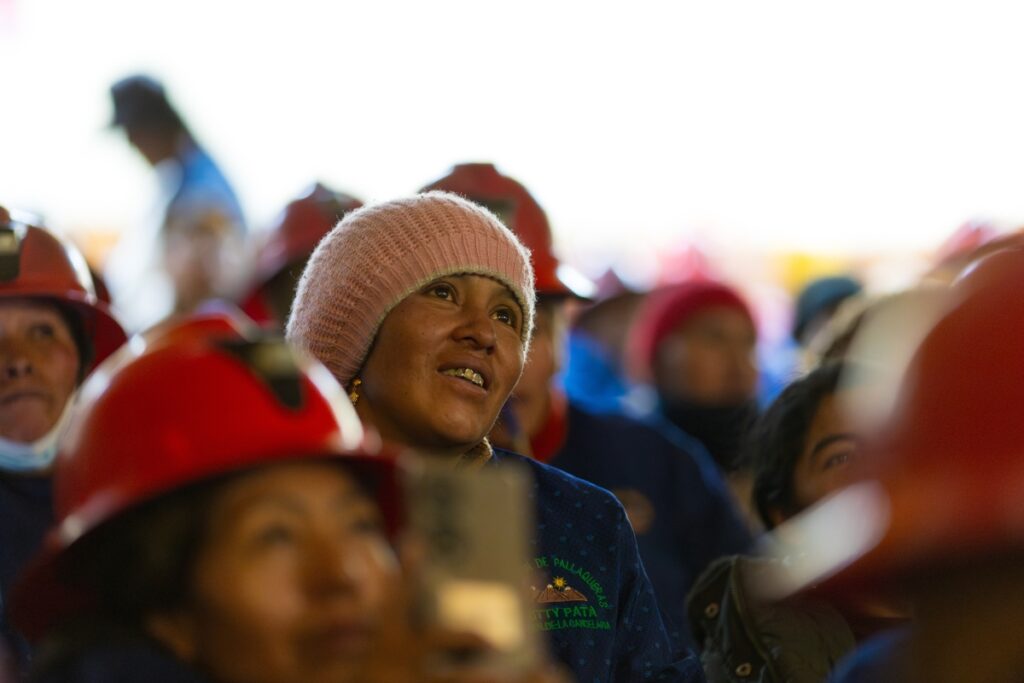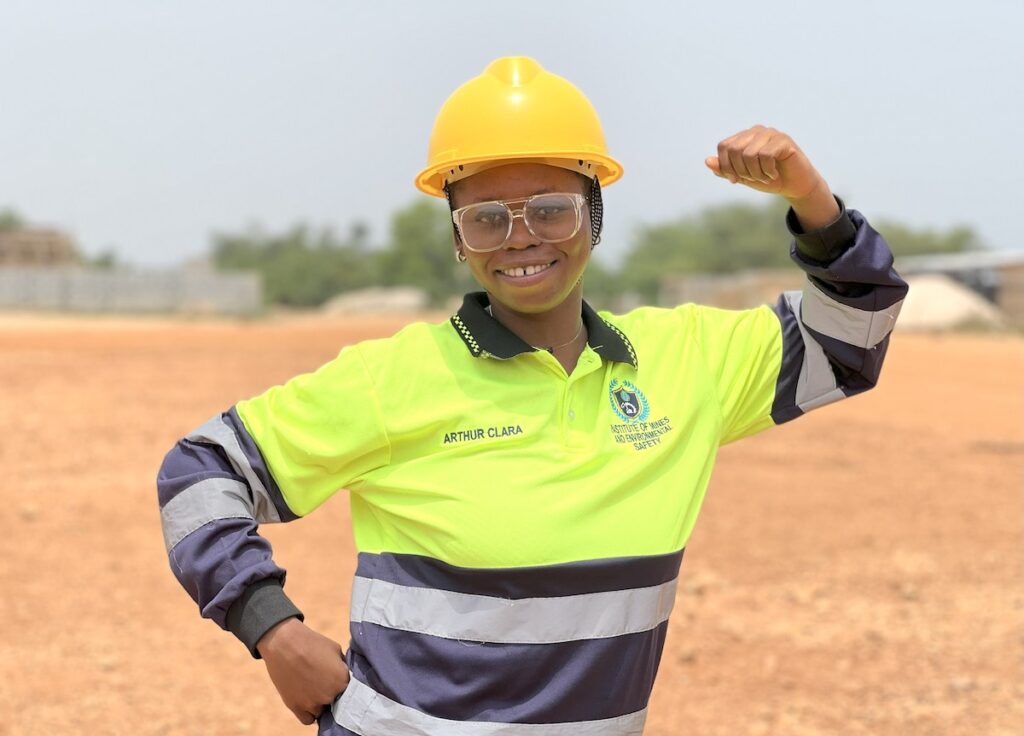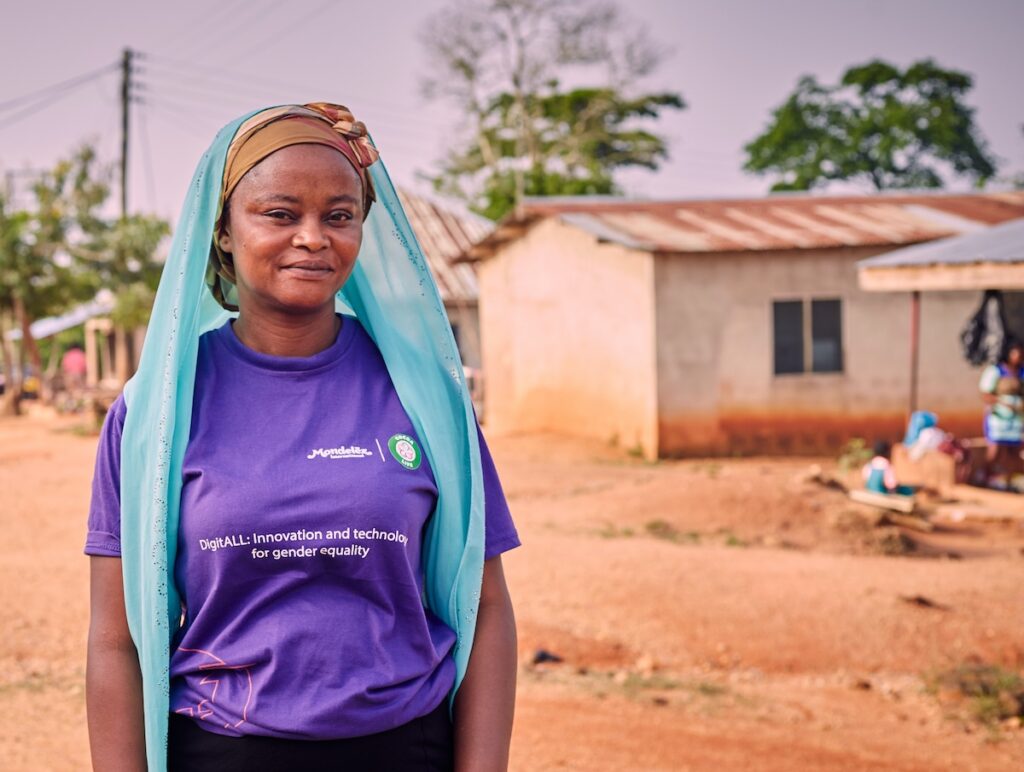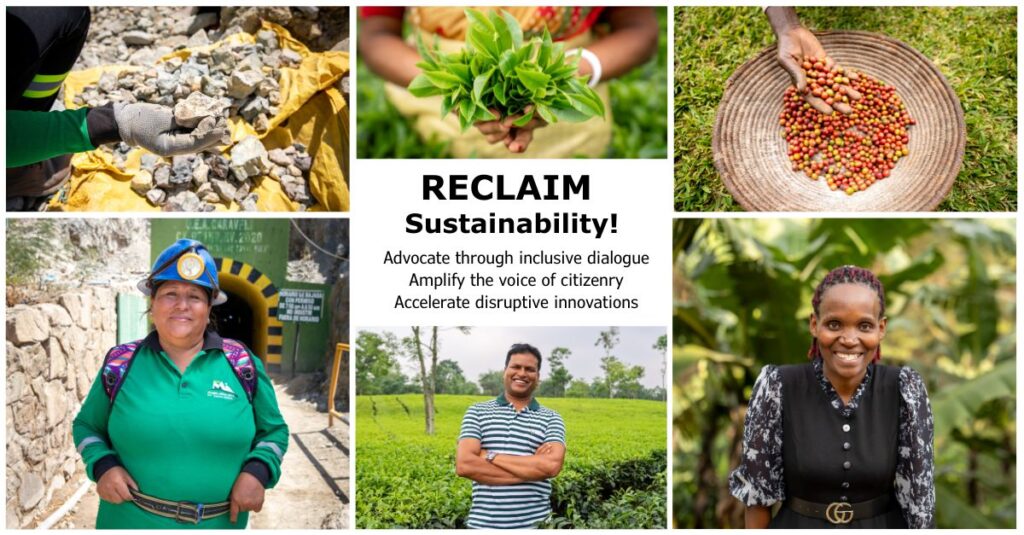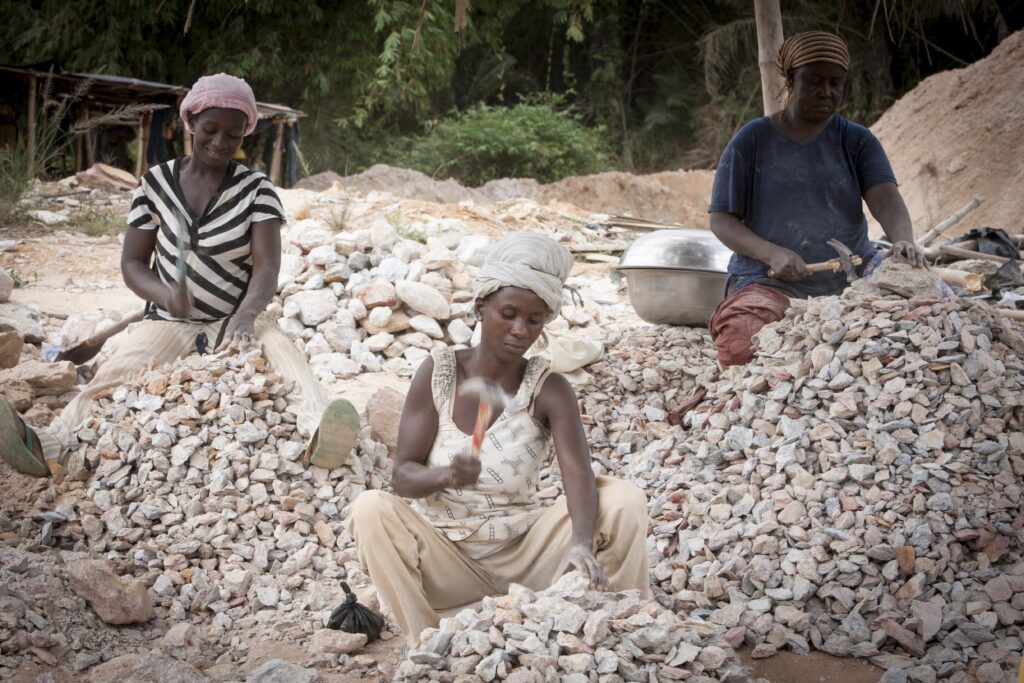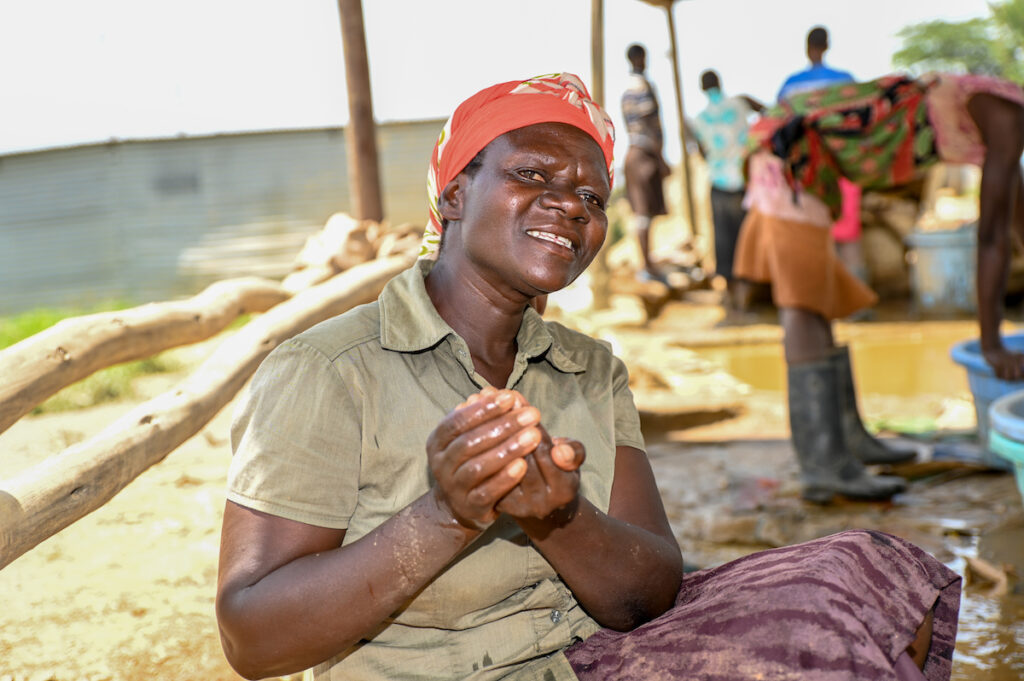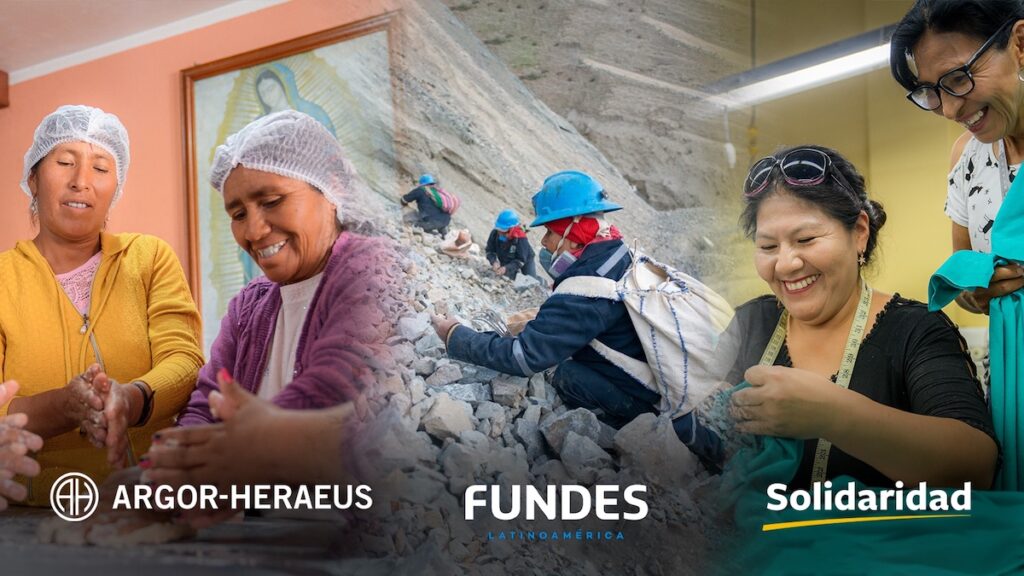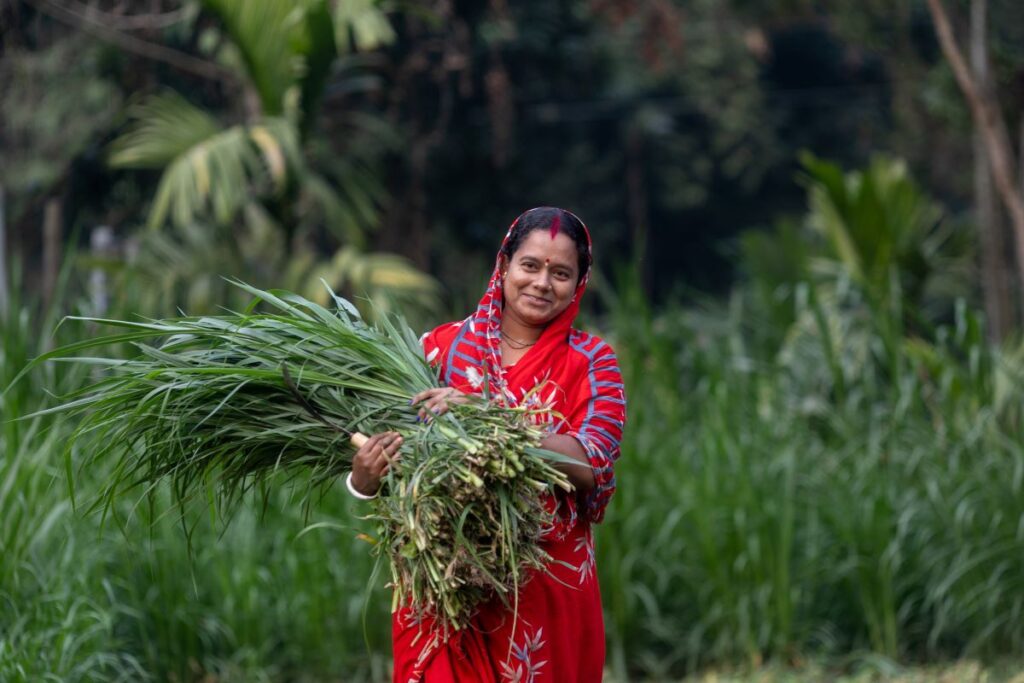
Challenges
Harmful to workers and the environment
The ways in which most gold is currently mined and processed has sizable negative consequences for both the people and the environment in and around mining communities. Mineral mining is the third largest global industry, just behind agriculture, and takes place in 80 countries.
The training offered by Solidaridad has provided a lot of insights for our work and have changed the perception that the accidents and injuries that occur in artisanal and small-scale mining activities are normal.
Mary Yankson, Golden Line programme participant, Ghana
Solutions
Working across the supply chain
Our work is transforming mineral mining into a driver of better, more equitable outcomes from mine to market. By working with stakeholders across the supply chain to craft appropriate solutions, minerals can transform the lives of both consumers, and producers.

In view of the work Solidaridad has supported us to undertake, this site is now used as a model center for small scale mining by the Minerals Commission of Ghana.
Eric Kwaku Gyamera, General Manager, Gold Bank Resources Ltd., Ghana
Achievements
Expanding efforts
In West Africa, we launched a campaign against irresponsible mercury usage together with TrustAfrica. This raised public awareness, prompting the declaration of a public health emergency. To improve access to formal markets, Solidaridad trained 31 small-scale mines on the CRAFT code requirements for responsible mining
Significant improvements were made in occupational health and safety in over 120 mines in East and Central Africa. Nine mines achieved an advanced level on the ESG Impact Escalator. This enabled them to access mining equipment through a leasing model from The impact Facility. Additionally, eleven mines achieved an intermediate level, indicating their ongoing efforts towards improvement.
In Latin America, we provided microenterprise management and business development training to 80 ‘pallaqueras’, women gold miners, in Peru. A seed capital competition was held, where one venture won 4,000 US dollars to start operations.
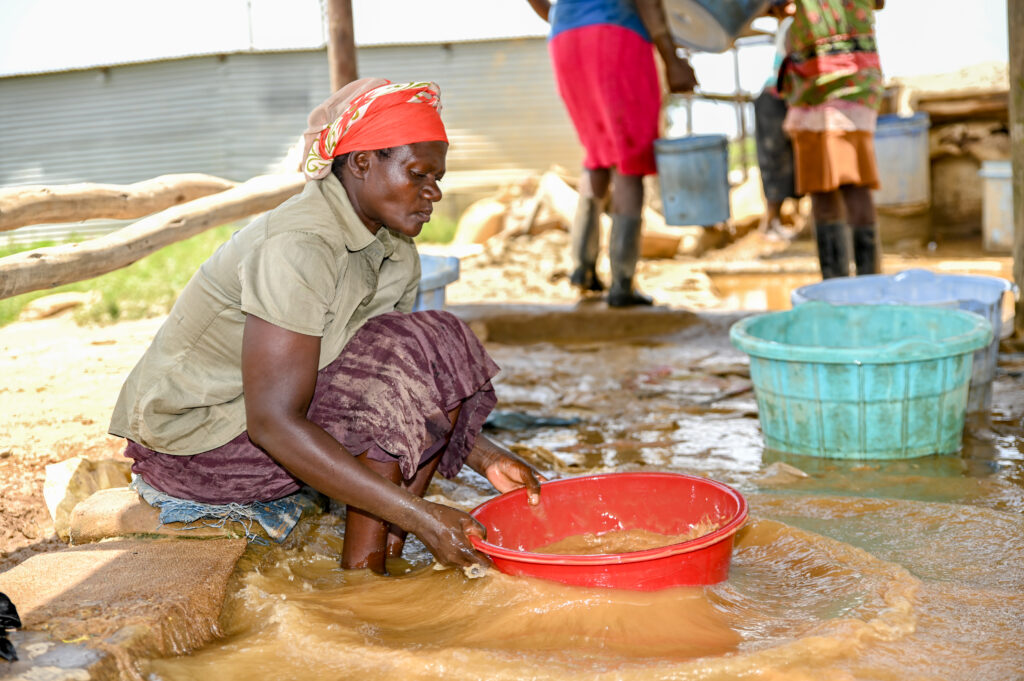
Best practices
In West Africa, we developed a digital traceability platform for the artisanal small-scale mining sector with the support of Minnex, a digital technology solution company. Eight mines received training on the use of the platform leading to the export of the first fully traced gold (11.62 grams) from Ghana. As part of best mining practices and legal requirements, we supported two mines to reclaim 2.6 hectares of mined-out lands. We also supported Ghana’s Minerals Commission to develop a draft National Child and Forced Labour Eradication Framework.
Our work in artisanal and small-scale mining included facilitating important stakeholder dialogues and benchmarking excursions in Uganda as well as supporting the development of regional advocacy committees and a self-regulatory framework in Kenya.
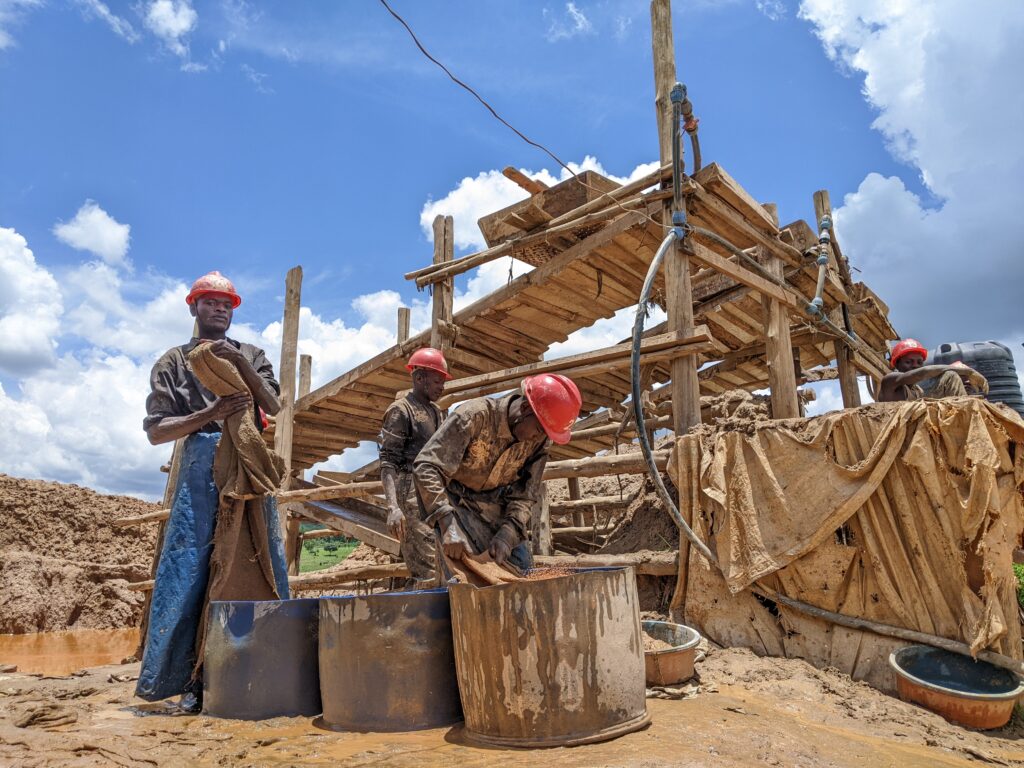
Improving conditions
A baseline assessment on Environmental, Social and Governance (ESG) metrics was conducted in 10 project mines. A plan for mercury-free implementation, mercury-free/management, mercury-free flow sheet, geological data, and mine profile summaries based on environmental, social, and governance results was developed.
A total of 15 artisanal and small-scale mines improved their working conditions after Solidaridad trained them to operate responsibly in line with the CRAFT Code in Ghana.
In South America, we signed an agreement with the Ministry of Energy and Mines in Peru to formally support the development of the New National Sector Policy for the Small-Scale Mining and Artisanal Mining, and strengthen the process of formalization.
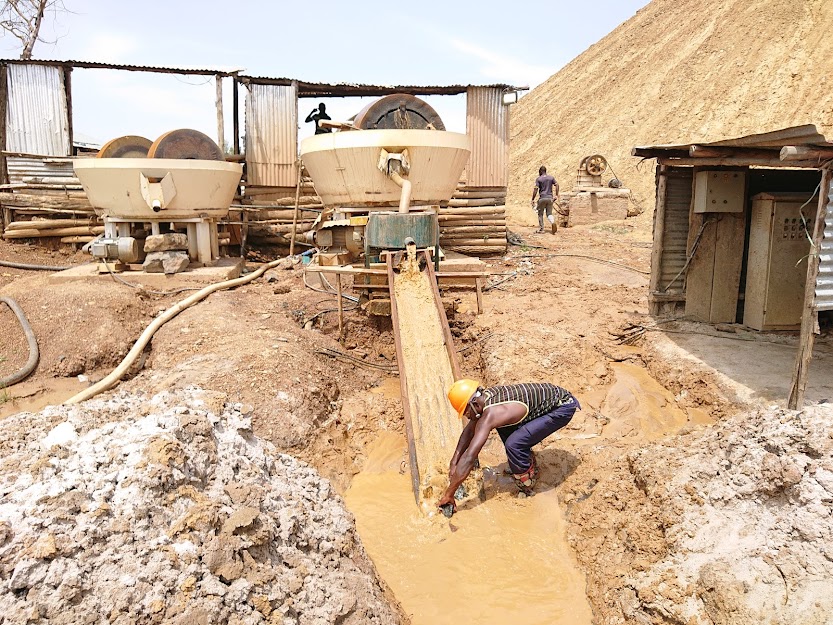
Digital solutions
In West Africa, practical guidelines on responsible mining practices were deployed to 4,000 artisanal and small-scale miners via a digital tool: the Interactive Voice Response platform. Ten mines produced 109 kg of responsible gold while 118 women received training in occupational health and safety, environmental protection and responsible use of mercury; these contributed to addressing negative externalities associated with small-scale mining.
In Tanzania, 15 artisanal gold mines reported improved adoption of procedures in line with the environmental, social, and governance performance criteria, scoring between basic (service entry criteria) and advanced (preliminary certification criteria). Meanwhile in South America, 90 miners operating on the grounds of a medium-scale company in Peru worked on safer conditions and increasing economic benefits by reducing their material and input costs by 25 percent and their transportation costs by 30 percent.
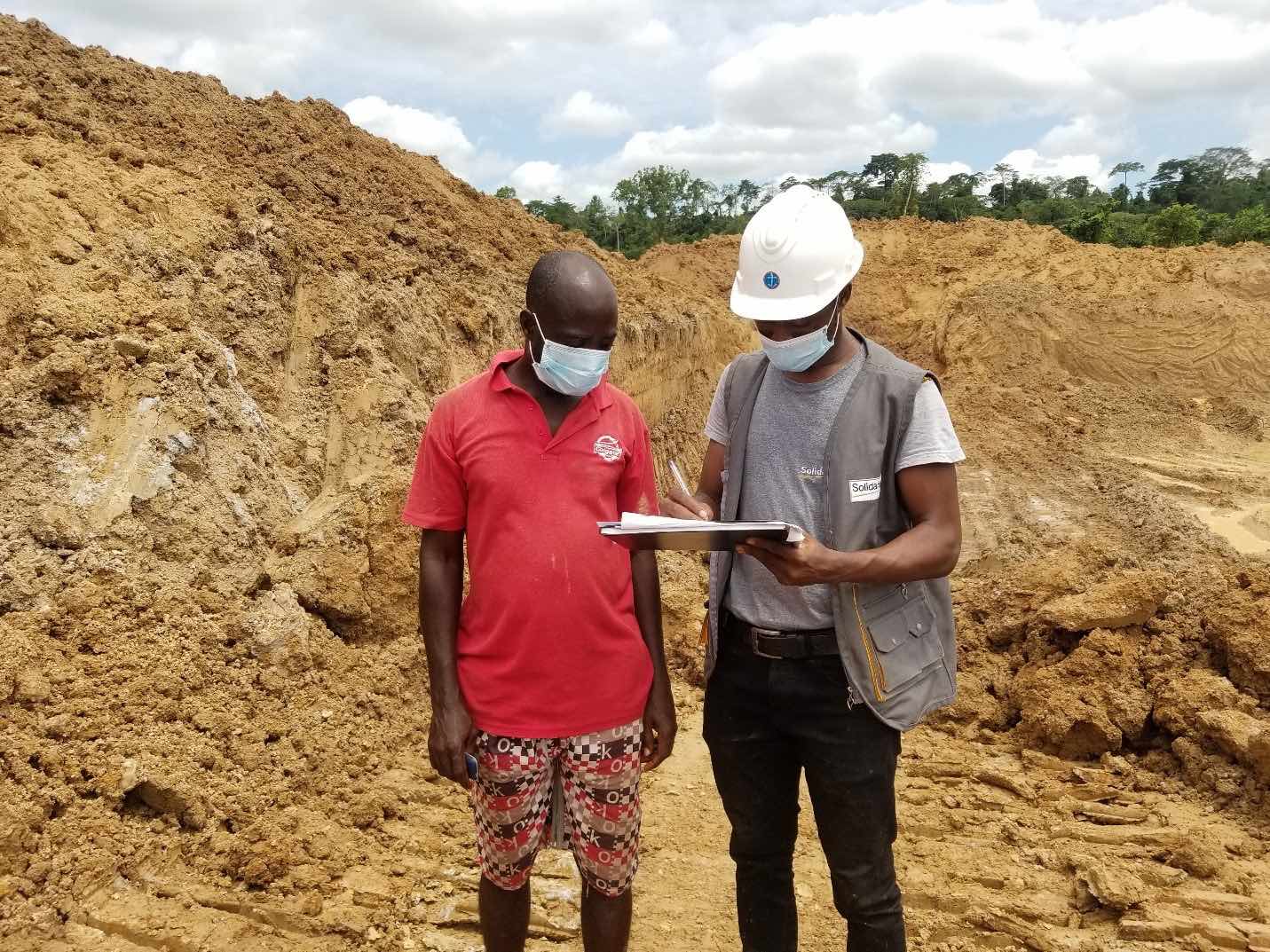
Against child labour
In the Anti-Child Labour in ASM Gold Mines project in Uganda, we conducted eight training sessions, reaching about 100 miners (40% youth). They were trained in best practices and business planning skills. In partnership with the Impact Facility, we secured mining equipment and a generator.
In West Africa, Solidaridad trained 330 miners, including 140 women, in responsible mining practices. This resulted in increased adherence to health, safety and environmental rules and responsible mercury use. In five mines, Solidaridad piloted the CRAFT voluntary technical code to prepare artisanal small-scale mines for the international market and to meet Fairmined standards.
Finally, a leading gold mining company in Peru was the first of 18 large companies to co-fund the formalization process of Pepas de Oro, an artisanal small-scale miners organization. As a result, 266 artisanal scale miners improved their health and safety conditions. Since 2016, Solidaridad has supported the production of 1,125 kg of gold using responsible practices in South

Building leadership
In Bolivia, we supported the National Network of Female Miners, building up leadership and advocacy capacity in over 200 female miners. In East and Central Africa, we undertook an economic, social and governance assessment of the mines participating in our projects to identify capacity gaps and design mine improvement plans. In West Africa, we participated in policy engagement with the multi-sectoral mining integrated project in gender, capacity building and re-categorization of mines in Ghana.

Spotlight on gender
Solidaridad introduced an innovative model, the Accelerator for Responsible Gold, in 2017 in response to the rapid global growth of artisanal and small-scale mining (ASM). By developing a small business incubator, Solidaridad will enable entrepreneurs to deliver the equipment and knowledge needed for responsible ASM and adopt good practices faster. The global spotlight on gender inequity in 2017 was reflected in Solidaridad’s growing focus on women’s economic empowerment in ASM in both established and new partnerships.

Collaborative initiatives
Solidaridad’s global gold programme became a founding member of several new collaborative initiatives, such as the European Partnership for Responsible Minerals, which are expected to have a long-term global impact. At the same time, through new programmes in mining communities, Solidaridad is on track to double the size of its support to small-scale mining communities with a new focus on women’s empowerment. Solidaridad also laid the groundwork for innovative models to scale up successes, in particular through working with social entrepreneurs and impact investors.

The results are in
Solidaridad received the results of four external evaluations from the first five years of its programme implementation in small and medium-sized gold mines. The lessons learned were valuable for Solidaridad and its partners, especially since 2015 marked the kick-off of our five-year strategic plan (2016-2020) as well as the start of three new projects and the extension of an ongoing project. This new work aims to extend responsible practices to at least 30 new mines.

Double impact
Solidaridad supported Kering brand Gucci’s purchase of certified gold – 30 grams total. The size of Solidaridad’s Gold Programme work in Ghana doubled.

On our way to good gold
In 2013 Solidaridad’s work in gold continued to grow and expanded with 4 new projects. The world’s first Fair Trade gold medal was also presented at the European Youth Olympics Festival. Each medal contained a drop of pure Fair Trade gold, marking the first time any medals containing any Fair Trade gold had been used.
Solidaridad’s ‘On our Way to Good Gold’ campaign was shortlisted under the non-governmental organization category for the 2012 European Excellence Awards.

The 3 Ts
Solidaridad began participating in the OECD forum for due diligence in the supply chains for gold and the “3Ts” (tin, tungsten and tantalum) to support ongoing efforts to reduce the trade in conflict minerals.
Solidaridad began gold work in Africa and joined the Steering Committee of the Responisble Jewellery Council (RJC).
Solidaridad launched Fair Trade and Fair Mined gold into the Netherlands by connecting 10 jewellers and their suppliers to mines in Solidaridad’s projects in Latin America. Media coverage of the introduction reached an audience of 8 million, making it one of Solidaridad’s most successful events ever.

Innovative pilots and Fair Trade firsts
Solidaridad began an innovative pilot project with the first industrial mine in Peru and launched the ‘On Our Way to Good Gold’ campaign in the Netherlands. The campaign has two goals: raise awareness of the need for better practices in the mining sector and inspire consumers and jewellers to take action to support Solidaridad’s work with mines.
The first Fair Trade Fair Mined gold was introduced to the market in the U.K.. Solidaridad partnered with the largest licensee, Stephen Webster, to raise awareness of the need for buyers to source certified gold. The first kilo of certified gold came from Cotapata mining association in Bolivia, which Solidaridad had supported since 2009.

Certifying practices
Solidaridad designed a programme for working alongside industrial mines to certify their practices and to support meaningful development in nearby communities. Solidaridad also began to actively engage with European gold buyers to increase awareness and help transition the sector from conventional to responsible practices.

Launching new programmes
Solidaridad’s full gold programme launched and pilots in Peru, Colombia, Bolivia began. Nowadays five projects in Latin America have achieved certification.




